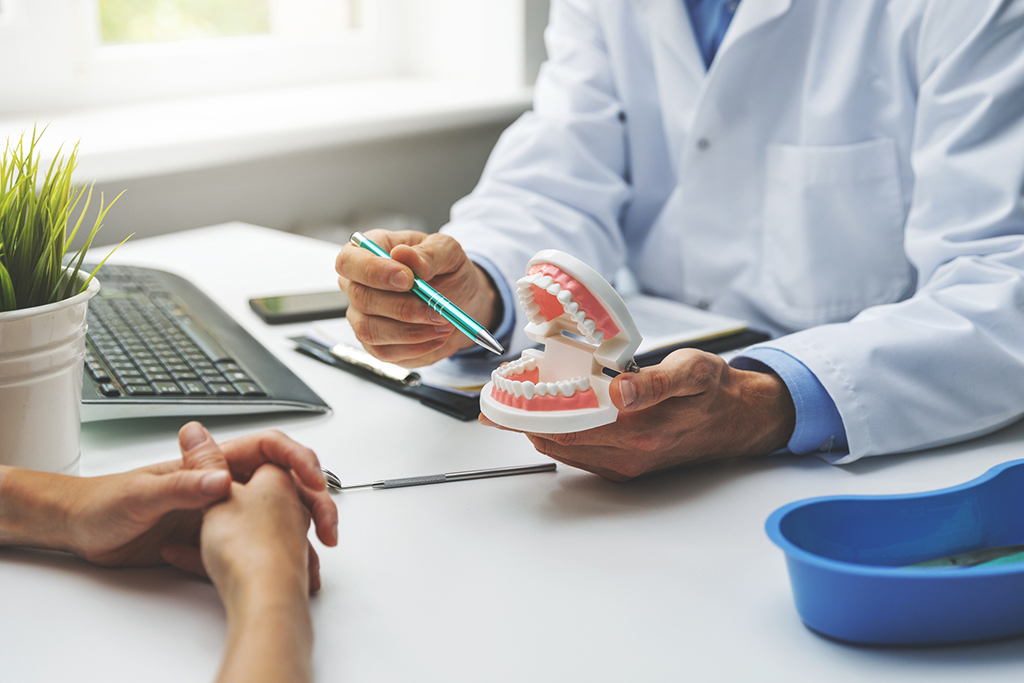
Meeting Your Oral Surgeon | Plano, TX
Photo By ronstik at istock
Before you undergo any oral surgery at NextGen OMS in Plano, TX, you will have the chance to meet and speak to your oral surgeon, Dr. Eftekhari, as well as other members of the team here at the clinic. This is your opportunity to ask questions about your upcoming oral surgery. Here are some tips that can help you to make the most of this time to put your mind at rest about the procedure you are planning to undergo.
Ask Questions
You should never be afraid to ask questions about an upcoming oral surgery. For example, you might find it helpful to know how long the surgery will take, what exactly it will involve, and how long you can expect to spend recovering before you get back to your usual routine.
A good oral surgeon and their team will always be willing to talk you through a procedure. You should know what is going to be done to your mouth and what the purpose of the surgery is. You should also know what alternatives are available, as well as the possible consequences of not having the surgery. If yours has not explained everything clearly, or you have missed something or not understood, please do not hesitate to ask them to go over the information again.
Some common procedures that we offer at NextGen OMS include:
- Dental implant fittings
- Wisdom teeth removal
- Other tooth extractions
- Jaw and mouth reconstruction
- Oral cancer surgeries
- Facial cosmetic procedures
In addition to talking to your surgeon and our team here at NextGen OMS, you can also find out more about the procedures we offer on our website.
Discuss Sedation Options
Some oral surgery procedures can be carried out using just a local anesthetic to block pain. However, many procedures that we carry out at NextGen OMS are more invasive than typical dental procedures, which means that a lot of patients prefer to have some kind of sedation to help them feel calm during the treatment session, or even to sleep through it.
Some common sedation options for oral surgery include:
- Oral sedation
- Nitrous oxide (laughing gas)
- IV sedation
Note that if you opt for a type of sedation that causes drowsiness, you will need someone to pick you up after the surgery and drive you home, as you will not be safe to drive yourself.
Your oral surgeon can help you to choose the sedation option that is most suitable for you. Be prepared to spend some time discussing this important aspect of the surgery.
Discuss Recovery
Many people spend a lot of time worrying about the experience of oral surgery and do not give much thought to recovery. Due to the anesthetic and sedatives used during oral surgery, procedures are usually painless, but some people do experience discomfort during recovery, so it makes sense to focus more on this period.
You can make your recovery from oral surgery much more comfortable with just a little bit of planning. For example, you might find it helpful to prepare some soft foods, such as soup, before the surgery so that you have something suitable to eat when your mouth is a little sore.
Ask your oral surgeon about pain relief after your procedure. Depending on the type of surgery and your individual needs, the surgeon might prescribe medications for you to take, or recommend that you take over-the-counter medications instead.
Finally, it is often a good idea to schedule some time off work after oral surgery. Many people feel tired as a result of the sedation. Talking can also be more difficult than usual for a day or two.
Give Full Information About Medication and Conditions
It is very important that you inform your oral surgeon about any medication that you are taking or any medical conditions that you have. They may ask about these things because certain conditions and medications can affect your treatment. For example, if you are taking blood thinners to manage another condition, they can increase the risk of bleeding during oral surgery.
Do not stop taking any medications before oral surgery unless your oral surgeon tells you to do so. Dr. Eftekhari has the expertise to balance the risks posed by medication during surgery with the risks of coming off it and will let you know what to do to keep you safe.
Take Notes
During your meeting with your oral surgeon, you might find it useful to take notes to help you remember important parts of the discussion. In particular, write down any instructions regarding medication if your oral surgeon does not give you this information in a written form. Do not hesitate to ask the surgeon to repeat information, slow down, or explain things in a different way, if that would help you. Some people find that they get stressed during medical appointments and fail to remember important details later on, so taking notes can be very worthwhile.
Call Back
If you get home from your initial appointment and realize that you do not have all the information you need, it is perfectly fine to call back and ask further questions. All the team at NextGen OMS want you to feel happy and relaxed at the prospect of your upcoming oral surgery and are therefore happy to answer as many questions as you need to ask.
Schedule an Appointment Today
The first step to meeting your oral surgeon in Plano, TX is to give us a call at NextGen OMS to discuss your needs and set up an initial appointment. We are always ready to take your call, so pick up the phone today or reach out to us through the contact form on our website.


